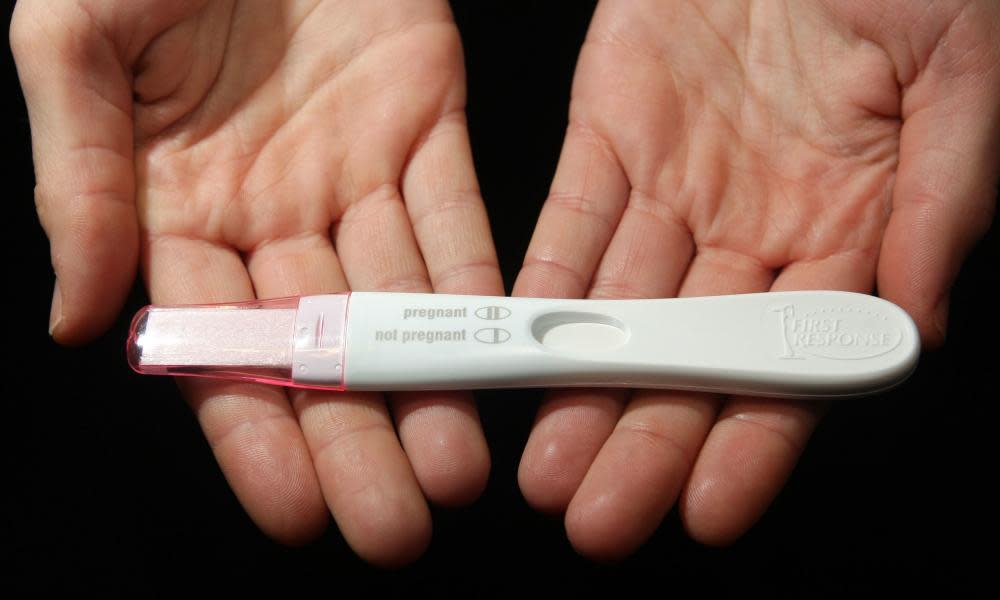UK facing crisis point in abortion provision, experts say

The UK is facing a “crisis point” in abortion provision, experts say, with rising demand and restricted access to care in many areas putting unprecedented pressure on struggling NHS services.
Healthcare professionals described a “terrifying” state of affairs in which women are travelling hundreds of miles for appointments or waiting several weeks before they are seen.
Dr Jonathan Lord, the director of MSI Reproductive Choices UK, a major provider of abortion services, told the Guardian’s Today in Focus podcast: “There is no doubt we are seeing absolutely unprecedented levels of demand at the moment. All providers are reporting they are busier than they have ever been.”
Lord, who is also an NHS consultant gynaecologist, said the rise was being driven by “the economic downturn, the cost of living crisis and the ability to access good quality contraception” via GPs and sexual health services, which have been affected by the wider NHS crisis.
Clare Murphy, the chief executive at the British Pregnancy Advisory Service (BPAS), previously said: “The pandemic, and the policies adopted by the government, have had a clear impact on women’s pregnancy choices.” Faced with “economic uncertainty and job insecurity”, women had been forced to make tough decisions, she said.
A record 214,869 abortions took place in England and Wales in 2021, according to government data. According to new data seen by the Guardian, MSI treated 47% more people in the first two weeks of this year than over the same period in 2022, and gave 51% more phone consultations.
MSI, which has more than 60 clinics in England and Wales, says it is only managing to keep wait times steady because of staff working extra shifts and weekends. The number of surgical abortion appointments has been increased by 38% to cope with demand.
A report by the Royal College of Obstetricians and Gynaecologists published in November said the commissioning for abortion care and insufficient funding of services had resulted in poorer standards of care for women and “marked variations across the UK, with women accessing abortion in many areas being denied the rights they should expect from the NHS constitution”.
The problem has been compounded by chronic staff shortages and the closure of sexual health services during the pandemic. Increased demand in the private sector is adding pressure to NHS services, with just five UK trusts offering specialist surgical abortion services.
Murphy said: “What we are seeing now is the culmination of a series of longstanding pressures that the service has been under for many years. But the pandemic and the current huge pressures on the NHS have brought things to a crisis point.” She said that while negotiations with commissioners continued, BPAS was looking at closing some abortion centres.
Tracey Masters, who works at Homerton university hospital in east London, in one of just five NHS trusts offering specialist surgical abortion services, said her clinic had been receiving more referrals in the last six months because waiting times in the independent sector had gone up. “It can be really traumatic, and we are seeing women who have been waiting weeks and weeks to seek care,” she said.
Nicola (not her real name) made a round trip of more than 500 miles to Homerton owing to a lack of availability for an appointment in her local area. “I was on the phone in tears. The hospital closest to me didn’t have any space, and the one that was two hours away from me were unable to see me because of how far along I was. So I ended up being booked at one more than three hours away,” she said.
An NHS spokesperson said: “There has recently been an increase in demand for abortion services, and as a result NHS England is currently consulting on updated payment guidance for local commissioners in order to ensure they continue to deliver these services in the most effective way and to the highest clinical standards.”
A spokesperson for the Department of Health and Social Care said: “The government recognises there is more work to do to improve women’s reproductive health. Plans for sexual and reproductive health will be set out later this year, including ensuring women can continue to access robust and high-quality abortion services.”

 Yahoo News
Yahoo News 
